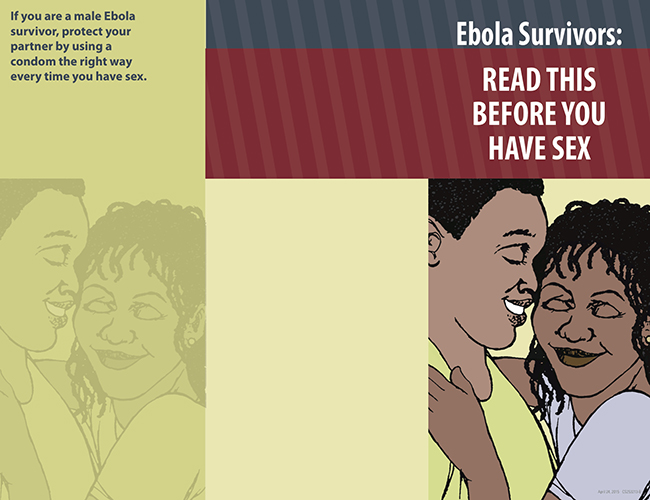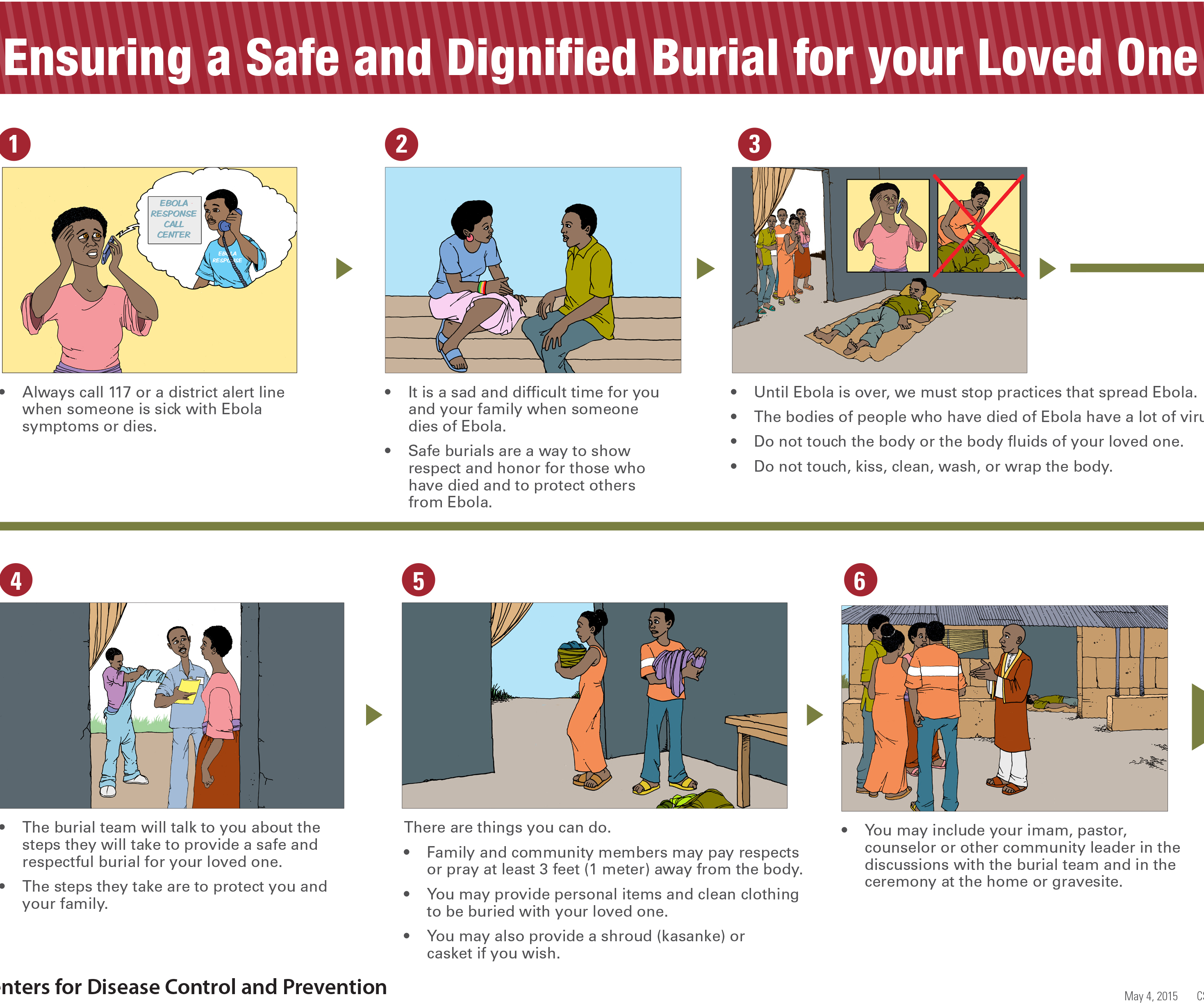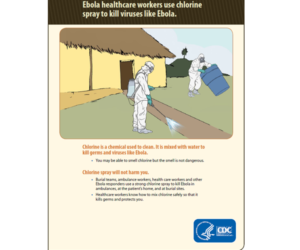Ebola Survivors: Read This Before you Have Sex
 If you are a male Ebola survivor, protect your partner by using a condom the right way every time you have sex.
If you are a male Ebola survivor, protect your partner by using a condom the right way every time you have sex.
 If you are a male Ebola survivor, protect your partner by using a condom the right way every time you have sex.
If you are a male Ebola survivor, protect your partner by using a condom the right way every time you have sex.

Safe burials are the way to show respect and honor to those who have died while protecting the living.
Infographic: Ensuring a Safe and Dignified Burial for your Loved One
 Poster describing the use of chlorine to kill viruses like Ebola. [Download]
Poster describing the use of chlorine to kill viruses like Ebola. [Download]
This module covers the basic concepts for evaluating and briefly managing a patient under investigation for Ebola. Although all U.S. healthcare facilities need to screen and promptly identify patients at risk for Ebola, the content of this module is primarily for Ebola Assessment Hospitals. These hospitals need to be capable of initial evaluation and care of these patients for up to 96 hours until Ebola testing is complete and a diagnosis of Ebola is confirmed or ruled out. Plans should be developed and practiced for safely transporting patients within the facility, designating and preparing a patient room and adjacent spaces to be used by staff, training staff on the use of personal protective equipment, laboratory safety, communications, and environmental infection control and waste management, among other topics. Public health authorities should be consulted promptly for additional information and guidance, and to facilitate transfer of the patient to an Ebola Treatment Center, if necessary.
This module provides guidance to frontline and assessment hospitals for developing plans and procedures for safely implementing appropriate isolation precautions for a patient under investigation for Ebola. The module is focused on the emergency department, which is the likely first point of contact. Planning and adhering to these precautions will minimize the risk of infecting patients, staff, and visitors while these patients are evaluated. The module also outlines guidance for coordinating with public health authorities during the evaluation of patients under investigation for Ebola.

The Ebola Communication Network was originally developed by the Health Communication Capacity Collaborative (Cooperative Agreement #AID-OAA-A-12-00058) and expanded under Breakthrough ACTION (Cooperative Agreement #AID-OAA-A-17-00017) both under the leadership of Johns Hopkins Center for Communication Programs. This website is now maintained by Johns Hopkins Center for Communication Programs and its contents are the sole responsibility of CCP. The contents of this website do not necessarily reflect the views of USAID, the United States Government, or Johns Hopkins University.
